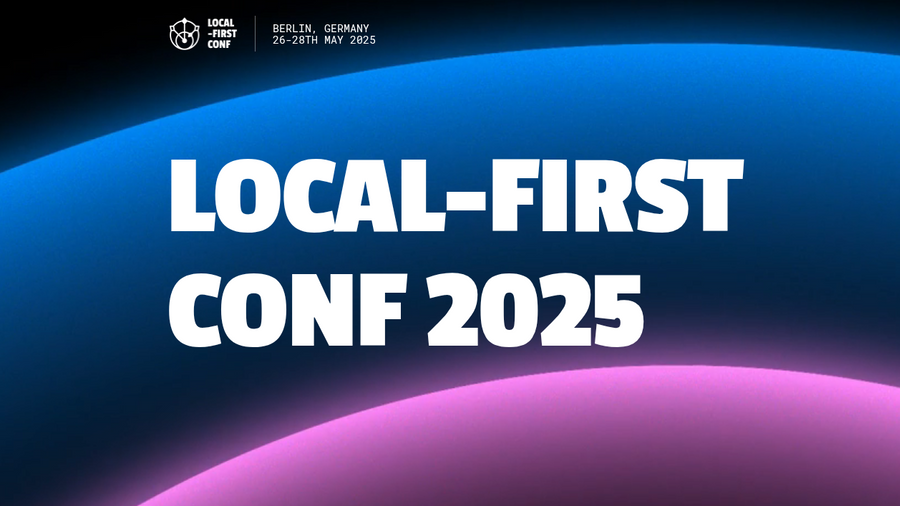~ 3 min read
Local First Conference in Berlin

We are excited to be part of the biggest annual event of the Local First community, namely, the Local First Conference in Berlin, from Monday 26 to Wednesday 28 of May !
It is the second edition of the conference, that will span 3 full days this year.
The first day is called the Community Day, with workshops and unconference activities, plus an after-party. Connect with speakers and attendees in a collaborative environment.. We will be presenting NextGraph at 16:30. During a live coding session of 45 minutes, we will demonstrate how to code a new webapp with NextGraph, that uses the local-first features of our framework, including the “Social Query” feature. More about that here below.
Here is the full program of the 3 days.
This event is free, and it will be located in a different venue than the rest of the Conference, so please don’t get confused.
On Monday, everything will be happening at The Delta Campus. The address is Donaustraße 44, 12043 Berlin, Germany.. You need to RSVP here.
Then on Tuesday and Wednesday, a complete lineup of talks and keynotes will happen at the nHow Berlin. The address is Stralauer Allee 3, 10245 Berlin, Germany. Few tickets remain for sale here
More details on the website.
See you there!
And about our live coding session, here is the description:
Build local-first, P2P and E2EE social apps, with NextGraph! The case of a tiny LinkedIn FOSS alternative.
Sharing your skills in the social network is LinkedIn main feature. Not only can I list and rate my subjective own set of skills, but my peers can also endorse me and attest what am I skilled in. As LinkedIn is a centralized service, it constructs and maintains a centralized graph database that contains all its users. Querying it and matching needs and offers (of skills, or job positions, etc) is easy, as the developers of LinkedIn platform enjoy a direct global view on the social graph and all associated data.
When we switch to a decentralized and privacy-focused paradigm, things get complicated quickly. In a peer-to-peer setting, nobody ever has the “full picture”, so matching people together and issuing recommendations, do not work easily, or at all. Also, the issue of trust arises. A centralized system can verify claims quite easily. In a decentralized system, claims have to be self-signed, and a web of trust between peers needs to be maintained.
With NextGraph features of SPARQL queries traversing the social graph, associated with social sharing, and signatures on every bit of Linked Data, we can reimplement the same kind of algorithms and services, without any single point of failure, and while respecting the privacy of everyone.
In this live coding session, we will explore how to create a new app with NextGraph Framework, how users can fill-in their own skills’ profile, and rate the skills of others. Eventually, users will be able to search for skills in the social network, and obtain a ranked list of the best fit, based on selected criteria. Thanks to the local-first nature of the framework, editing your profile or browsing the results of a query can work offline too, and social queries also work in the event of intermittent connectivity. NextGraph being end-to-end encrypted at heart, all exchanges are safe and private, revealing nothing to the infrastructure and underlying servers, and letting users decide what they want to share with others. Eventually, data portability and interoperability being one of our main concerns, we will demonstrate how we prevent any lock-in and how users can switch to other apps, while remaining in total control over their own data.
